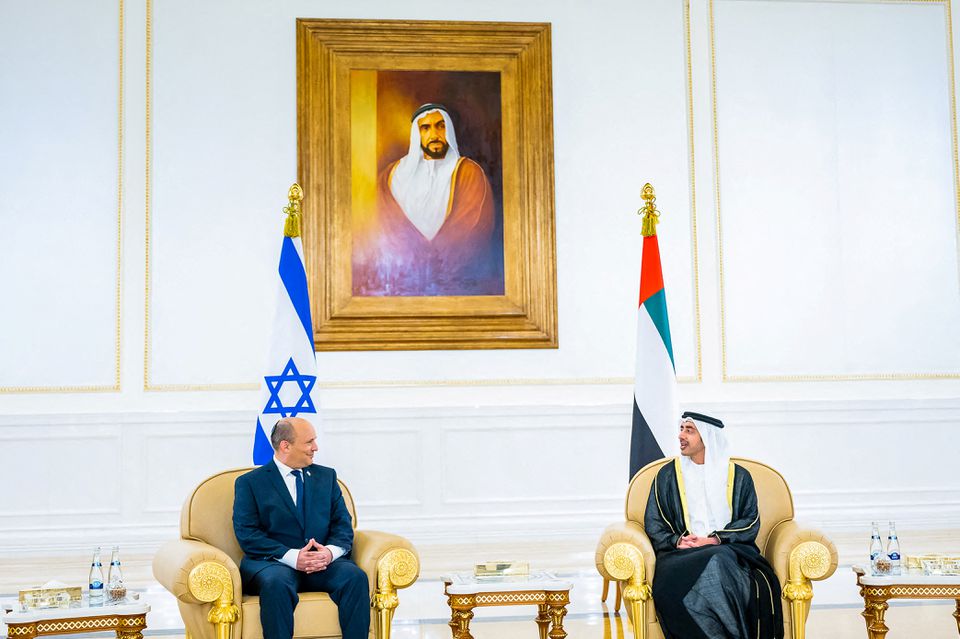By Lucas Holloway
Once long-standing adversaries, Israel and the United Arab Emirates have come to establish a growing partnership in recent years, brought about by the historic signing of the Abraham Accords in August 2020. Here’s everything you need to know about this diplomatic normalization and its potential reverberations across the Middle Eastern world.
Did These Nations Interact Much Before 2020?
Since its founding in 1971, the UAE had long refused to recognize the State of Israel—disputing its sovereignty as a part of the larger Arab-Israeli conflict that had persisted since Israel’s founding in 1948. Tensions between the two grew especially strained in 2010 after the UAE accused Mossad—Israel’s intelligence agency—of assassinating a leader of Hamas in Dubai, the UAE’s most populous city. However, since then, relations between the two nations markedly improved, in large part because of the mutual threat Iran’s nuclear program posed following the Joint Comprehensive Plan of Action’s (JCPOA) collapse in 2018, a deal both the UAE and Israel opposed.
What Made the Abraham Accords So Important?
Signed on Aug. 13, 2020, the Abraham Accords was a monumental turning point in Middle Eastern diplomacy, marking the first-ever normalization between Israel and an Arab Gulf country. In it, the UAE and Israel agreed to partnerships across economic investment, tourism, communications, and international flights while also committing to opening embassies and exchanging ambassadors. However, underlying all this cultural diplomacy was a tacit agreement for the need to take a united stand against Iran, whose growing nuclear capabilities put both nations at an increased risk of attack—whether directly or through the Houthis, an Iranian-backed rebel force.
How Have Israeli-UAE Relations Changed Since Its Signing?
Since the agreement’s signing two years ago, collaboration between the UAE and Israel has expanded across a wide breadth of fields. In March 2021, for example, the UAE announced the creation of a $10 billion investment fund to support critical Israeli sectors, ranging from energy manufacturing to healthcare. In turn, thousands of Israeli tourists have poured into the UAE, traveling throughout the Emirates and even celebrating Hanukkah in Dubai. Most importantly, considerable focus has been spent on strengthening military arrangements in light of the two countries’ shared Iranian threat. Discussions have included the sale of advanced Israeli air-defense systems and the joint development of military drones, which have gained increased prominence following a Houthi attack on Abu Dhabi this past January.
What Does This Mean for the Rest of the Middle East?
As shown, the growing partnership between the UAE and Israel represents a budding shift in Middle Eastern geopolitical dynamics, where Iran—not Israel—is seen as the greatest threat to regional stability. With Iran’s nuclear capabilities continuing to increase in combination with the recent U.S. withdrawal from Afghanistan, Middle Eastern nations are now seeking increased security through more local connections. Indeed, other Arab states, including Bahrain, Sudan, and Morocco, soon announced plans to normalize relations following the UAE’s declaration, highlighting the situation’s diplomatic fluidity. In short, the UAE-Israel agreement may mark a new period in Arab-Israeli politics—one with a shared hope for stability and cooperation not seen since the dawn of the 21st century.
Lucas Holloway is a freshman majoring in International Studies and Economics at Johns Hopkins University. He is originally from Daytona Beach, FL, and is a member of the editorial team on the Hopkins Podcast on Foreign Affairs.

